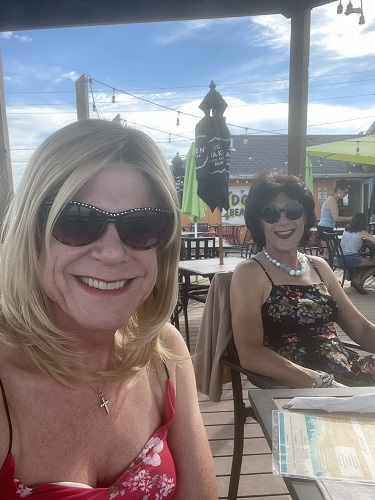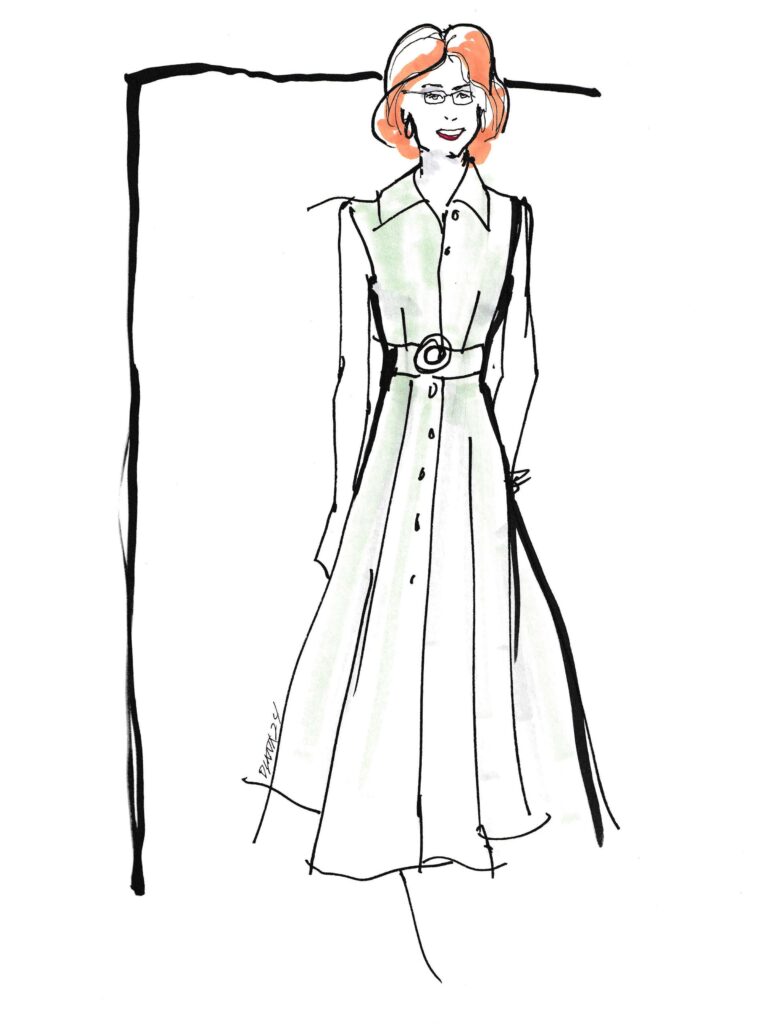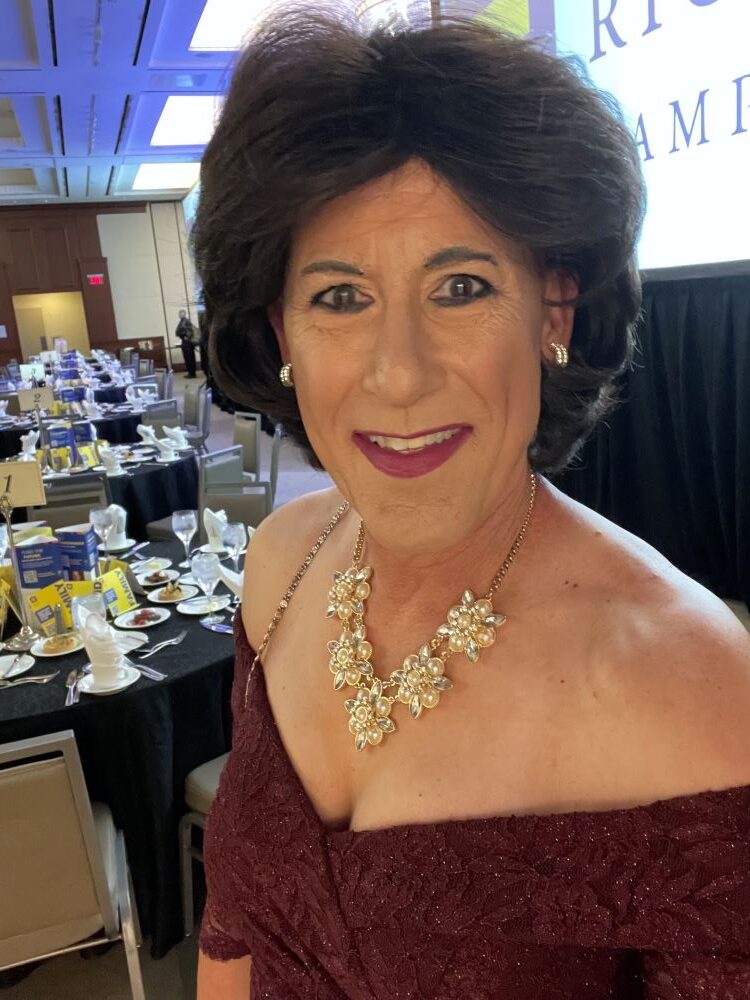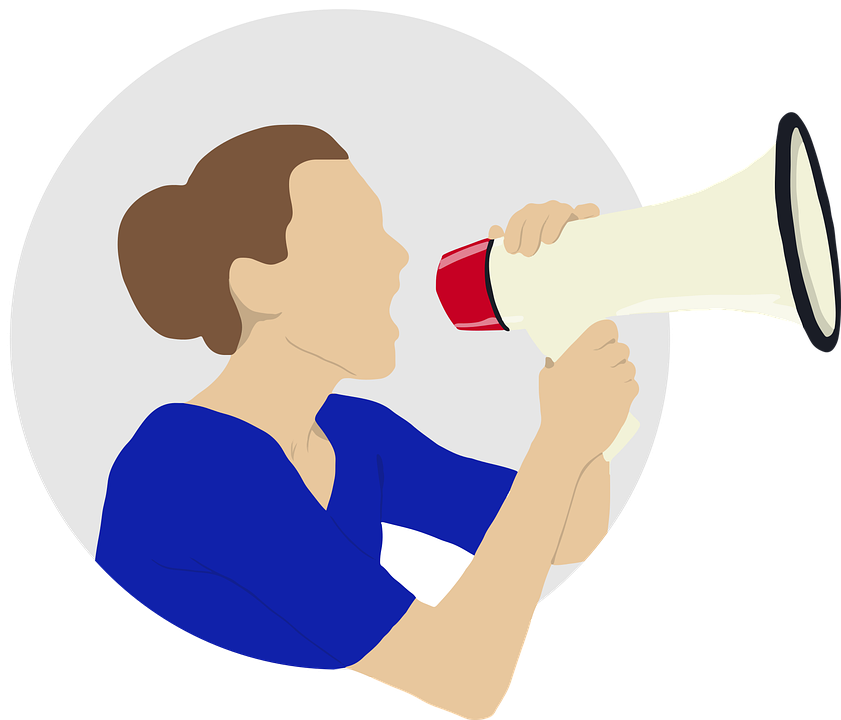By Lisa P.
Kandi’s reposting of “Life” brought a swirl of emotions and questions. Emotions because I went to bed the next night and woke up in the middle of the night after a dream with a horrible feeling that I was letting down my wife. Probably it was my subconscious working through her essay. Other questions also quickly entered my conscious thought. Have I ever really seriously considered transition? If not (as I have claimed here), what in the heck am I doing living now about half the time as a woman (and the other half as husband, father, grandfather, work colleague, etc.)? What keeps drawing me inexorably toward the feminine?
Then there are the questions raised by Kandi about how to define her personal identity (bi-gendered). Will we forever be defining the terms for ourselves? I have concluded that we probably must, because each of us have unique journeys and struggle to define what it means to be the person we are.
For this short essay, I will begin by referencing Kandi’s comment that she has no gender dysphoria. To clarify where I am, I will share publicly just a bit of my discussions with a gender psychiatrist in London four years ago, as they help to frame where I am coming from. As my doctor said in her report, I self-referred myself “seeking an independent (read here: not my own!) assessment for diagnostic evaluation of gender incongruence and gender dysphoria.” The psychiatrist commented about me that “she feels entirely male at times in her life and entirely female at other times in her life, and for the most part as long as she can live as female regularly this produces no significant conflict in her life as she values both aspects of herself in different ways.” Sound familiar? Rather like Kandi’s “bi-gendered” reference I suppose.
The gender psychiatrist went on to report that my “presentation was female gender congruent.” Phew! At least I was in the right place talking to the right person wearing the right clothes! Her diagnosis was that I “met the diagnostic criteria for ‘gender incongruence’ (previously ‘transsexualism’).” She made clear that gender variant behavior and preferences (what I would describe as crossdressing) alone are not a basis for forming a diagnosis of gender incongruence, and she went on to discuss the grounds for her specific diagnosis of me (which shall remain private). The point I am trying to make about her report is that she did not diagnose me with “gender dysphoria.” We don’t have to feel “dysphoria” (generally defined by Merriam-Webster dictionary as “a state of feeling very unhappy, uneasy, or dissatisfied”) to feel the need to take action and seek treatment. In the end, my psychiatrist said I was emotionally stable and well-adjusted, and that I met all the psychiatric criteria to medically transition. I received that report as an “aha moment” in my life. The report confirmed personal concerns as to whether I was truly a “male,” as society and my family had concluded. It also explained why I continually sought herbal treatments that might help me be more female.
That being said, it took me a full year to decide to start microdosing estrogen instead of using supplements. I have talked about that particular decision before. I first told my wife that I wanted to consult with an endocrinologist. I wanted to see if taking a small dose of estrogen would help me with the incongruence I felt, which continued to nag me during the entire year. I was so much happier feeling female; I was certain that my true desire was to become more female. The decision to seek further treatment was momentous, as Teresa has made very clear in numerous comments she has made. These types of decisions completely change one’s life. I undertook the medical treatment with a view that I could always go back (even to the extent of having a mastectomy if that is what it took). But I have to admit that I never want to go back. I absolutely adore my little breasts, even as I have not looked to fully transition. I have felt more myself, and I am overjoyed at my feeling of wholeness. I haven’t had any surgeries, and that means I definitely present largely as a masculine-looking woman or transgender woman (depending on how badly someone wants to examine me). Feeling more like me, however, has been the key to reducing my daily (nay hourly) sense that I was living a lie trying to be “all boy.”
Having shared that incredibly personal story, I will admit (as I have done many times already here) that my decision to microdose has come at a cost. Please make sure you know yourself before you undertake such an important and life-altering course. It is apropos to recite the aphorism here: what is good for the goose is not necessarily good for the gander. So, if you really are a gander, don’t start plucking your tail feathers!
Logistically, my life admittedly is more difficult since I started estrogen therapy. Having well-defined breasts makes things extraordinarily difficult in the warmer months during those times when I must present as male. I can’t swim as a male easily. Try telling that to the grandkids who want dear old granddad to go with them to the swimming pool. My lovely wife is long-suffering, and I feel a tremendous sense of responsibility for her mental health about my gender identity (hence the reaction noted at the outset of this essay). She will openly say that she doesn’t like my breasts, and I feel badly that I have caused her distress by growing them. Ironically, through it all she is slightly more accepting of me today than she was when I started estrogen therapy, even while staying technically “don’t ask/don’t tell”. I still cause her distress if I seek her help with a logistical challenge (for example, when I recently mentioned my sports bra, it caused her to be visibly upset with me). Still, she managed to give me a pretty women’s scarf as a Christmas gift this year – not your typical “wife to hubby” Christmas present!
All in all, for me the last year was simply the most amazing time of my life. I developed many new women friends who now form a very important part of my social network. I have given back to this community in meaningful ways, even while living largely stealth (something I must do as part of the “deal” with my loving DADT wife — but also something I must confess that I prefer, as it means I am simply “Lisa” to my friends and not “that Lisa”). I have lived for weeks at a time as myself, comfortably moving about this world with nary a thought about my gender. I have learned to swim and dance in a leotard with other women and feel completely accepted in those spaces. I have thrown three parties for other women, and they have not only shown up, but have given me typical female hugs in payment for my thoughtfulness afterwards. And I have done all of this without forsaking my wife. I have come right out and asked her if she has felt jealousy toward any of Lisa’s female friends. I believe the reason she has not felt jealous is that she knows (and I constantly show her and remind her verbally) that she is Number One in my life.
Toward the end of her essay, Kandi answers the question how she manages by saying, “[M]y love for my wife makes it pretty simple. Transitioning, going full time, giving everything I have up, isn’t even a consideration.” Her conclusion is my conclusion. Transition is not a consideration.
Being me is good. Being aware of the needs of others is even better. Always bearing in mind where my female personhood stands in relationship to my wife and the rest of my world is best.














12 Responses
Lisa, that was an amazing post and, in particular, thank you for your candour about your personal situation.
I’ve long been troubled by the ubiquity which the term ‘gender dysphoria’ has acquired and it was refreshing to see the different angles discussed between you and the therapist. There are many philosophical rabbit holes that we can disappear down – does an overwhelming desire to present as female imply dysphoria as a male? How can we truly know what it’s like to be a woman if we’ve never been one? What exactly does ‘living as a woman’ mean? And so on (and there are three suggestions for posts here if anyone wants to take them up!).
Ultimately, I think we just have to figure out how to be happy in our own skin and the third paragraph from the end of your post just proves that having a Y chromosome need not be a barrier to this. And your description of your & your wife’s attitude to all of this, and particularly to each other, just reinforces the points I was trying to make in my post yesterday. It’s easy to think of the sacrifices we make to the female side of our life as necessary compromises within a marriage – it’s a trap I have fallen into several times – but in reality it’s a sign that we can enjoy the best of both worlds if we open our mind in that way.
Amanda,
You prove once again that we have so many insightful women on this site (thank you Kandi for bringing us together here and allowing diffferent voices to be heard). Truly, my hope is that all of us can “enjoy the best of both worlds” if that is what we want. I recently asked my current therapist if my women friends (who may perceive me as assigned female at birth, albeit a masculine version) would think me a fraud for not disclosing that I am transgender. She told me I should not worry, because a fraud deceives for ill intent, while I “deceive” for self-protection. She encouraged me to remain stealth, if I am able to do it. By stealth, of course, I mean I do not talk about being transgender and I interact with women who accept me as the woman I am.
Thanks again.
Lisa
Lisa,
Thank you so much for opening yourself up in this post. I am continually amazed at the very personal sharing that occurs here in Kandi’s Land.
I am so happy for you and all the things that you are learning about yourself. Your microdosing is having a very positive result in your life.
You have given me a lot to think about. For fifteen years I have been microdosing an
anti-androgen drug. They are used to help men with potential prostate cancer issues (which I did discuss years earlier in a Kandi’s Land post), but they are also used to block the masculinizing effects of testosterone in transgender women. This second effect is a bonus for me. I now have thinning facial hair and larger breasts.
Your bigender life is difficult to fully understand by your wife. And your deep love for her is very admirable.
I am so glad for the many girlfriends you have that completely accept you for the woman that you are.
You are indeed an inspiration to me.
Thank you dear friend.
Jocelyn
Jocelyn,
Your comments are really sweet. Thank you, lovely lady, for commenting.
Your T story reminds me to say (again?) that I have never suppressed my T — the E has done that for me. I guess I sort of did it the opposite of what many people do/doctor’s recommend. My skin is so smooth, I luxuriate in it. My smell is nicer too. My hair is fuller and stopped receding. My female waist is thinner. My face, however, seems to be the same old bruiser of a face as it was. The difference is that I feel more comfortable all over with myself, so I go out with minimal makeup often (as recommended by a makeup artist in the UK, just “lippy” rouge and eyeliner). It seems to work for me, as I still get ma’am all the time!
Thank you again for being a dear friend and reading and commenting once my posts.
Lisa
Lisa,
Many thanks for a wonderful insight into your life , hearing how others have dealt with professional help is so useful for those uncertain in taking that step , if you can’t help yourself then seek help in others . I confess my life is much fuller in taking those difficult steps . You make some interesting observations and I feel they highlight how terminology has changed in the professional sector . The use of the term ” transition ” has evolved , at one time it was a black and white statement now it’s used more as a state of evolvement .The same goes for ” dysphoria ” , again it was a black and white term now many appreciate there are degrees of dysphoria , I know I have it but not to the point where I hate my body enough to surgically change it . Being fulltime for the last six years I realised what parts we have between our legs make little or no difference to the society I’m now happily part of , OK I admit I’m divorced and don’t have a partner ( male or female ) but what I do have now are many more friends especially women who treat me as an equal .
When posed with the question , ” are you happier as a man or a woman ?” The most suitable answer is I’m happier as Teresa ( or Terri to most of my friends ) . It’s possibly harder for you as you have attempted to adopt the life of Lisa but also exist within a marriage . Jan Morris managed fairly successfully eventually to but it was impossible for me but I’ve managed to maintain a good relationship with my son and daughter and the rest of the family .
I appreciate it is a tricky dilemma , is love for another enough to possibly deny yourself the full truth ? Sadly I discovered the love I thought we had wasn’t strong enough , after our separation the phone calls and Emails tore me apart , was this really the woman I’d been married to for over forty years ? The one consolation was it made the road ahead for me much clearer , I knew there was no going back , the only way was foward and a new life .
Teresa,
I love your answer, “I am happier as Teresa.” I am happier as Lisa, regardless of how I am perceived (unless someone specifically tells me, I don’t know how I am perceived, but I do know how I am treated). Let me be Lisa and treat me as Lisa and I am happy!
Thank you, as always, for giving new words to describe how I feel.
Lisa
I think the general public immediately thinks if someone is “Trans” they have to (or want to) “transition.” To keep it a buck, I thought the same many years ago. But I am better informed now, obviously, lol.
There are many people out there that identify as “trans” but just don’t transition due to “reasons.” But what is important, is the “self acceptance.” One has accepted they are trans. That is a big step. How one approaches things after that is up to them and what makes them happy.
-Christina
Cristina,
You have said it well. I couldn’t add a thing to your comment that self-acceptance is the most important starting point. Not that it is easy! No one “wants” to be transgender, because it causes each of us a lot of headaches. But with acceptance comes better self-love and self-care, because we realize that we are beautiful human beings just the way we are.
Lisa
Lisa, I should have also added in my post, that I am in the same boat as you and Kandi. Trans but not transitioning due to logistics. Just accepting myself and moving forward one day at a time.
-Christina
Christina,
At least we are doing our best to head the boat in the right direction! We deserve credit for at least trying to do that, even when we don’t quite get it right.
Thank you for comment.
Lisa
Hi Lisa, your thoughts are helpful, may I say comforting. As you well know I too am navigating “being trans”, being a Bible believing orthodox Christian, a husband, dad etc. while figuring out, without doing too much despite to my wife, how can I meet my only womanly needs.
I have accepted that I am trans, and despite whatever way I have attempted to slice it, dice it, parse it whatever, at my core I am a woman.
And honestly, I never want to let that go for I do not know who or how I would be as a male with my gender incongruity. I have a very clear picture of who I would be and how I would live if I were a woman full time, but as a male without this condition, I have no idea.
Reading your story (and others’ also) helps manage my incongruity, which volumes of prayer notwithstanding, the Lord has chosen to allow to continue in my life for over 60 + years.
Kindly,
Charlene
Charlene,
I very much understand your comment: “I have a very clear picture of who I would be and how I would live if I were a woman full time, but as a male without this condition, I have no idea.” It is so true! Thank you for sharing honestly. We all benefit from the thoughts and comments of others, even the painful ones.
Lisa